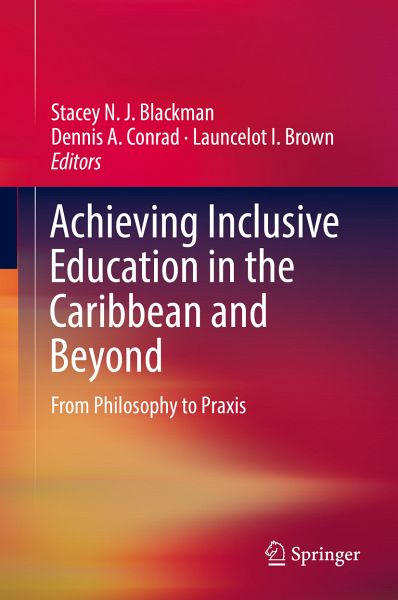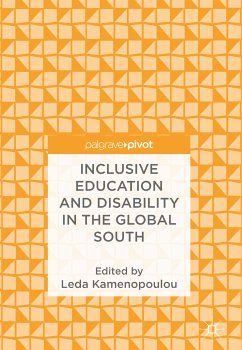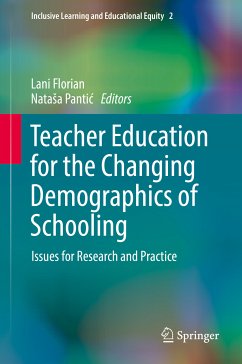
Achieving Inclusive Education in the Caribbean and Beyond (eBook, PDF)
From Philosophy to Praxis
Redaktion: Blackman, Stacey N. J.; Brown, Launcelot I.; Conrad, Dennis A.
Versandkostenfrei!
Sofort per Download lieferbar
72,95 €
inkl. MwSt.
Weitere Ausgaben:

PAYBACK Punkte
36 °P sammeln!
This book offers an international perspective of philosophical, conceptual and praxis-oriented issues that impinge on achieving education for all students. It sheds light on the historical, systemic, structural, organizational, and attitudinal barriers that continue to be antithetical to the philosophy and practice of inclusive education within the Caribbean. The first section of the book examines how globalized views of inclusion informed by philosophical ideas from the North have influenced and continue to influence the equity in education agenda in the region. The second section considers h...
This book offers an international perspective of philosophical, conceptual and praxis-oriented issues that impinge on achieving education for all students. It sheds light on the historical, systemic, structural, organizational, and attitudinal barriers that continue to be antithetical to the philosophy and practice of inclusive education within the Caribbean. The first section of the book examines how globalized views of inclusion informed by philosophical ideas from the North have influenced and continue to influence the equity in education agenda in the region. The second section considers how exclusion and marginalization still occur across selected Caribbean islands. It provides both quantitative and qualitative data about the nature and experience of exclusion in selected Caribbean islands, the UK and USA. The third section tackles the practical realities of transforming education systems in the Caribbean for inclusion. In particular, it identifies teacher practices as the mainsite of interrogation that needs to be tackled if inclusion is to be successful. The fourth and final section examines the contribution of principals and exemplars to the development and advocacy for inclusive education. It discusses how educational leadership is understood, as well as the role of school principals in making inclusion a reality in schools, the challenges experienced and the qualities of education leaders.
Dieser Download kann aus rechtlichen Gründen nur mit Rechnungsadresse in A, B, BG, CY, CZ, D, DK, EW, E, FIN, F, GR, HR, H, IRL, I, LT, L, LR, M, NL, PL, P, R, S, SLO, SK ausgeliefert werden.












